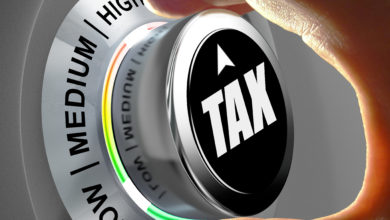Europe: Don’t Vote with Your Feet
Article published on TCS Daily on October 17, 2006.
If you are fed up with paying taxes, you’ll certainly like the idea of tax competition. It gives the opportunity to escape fiscal pressure from your own government by eventually « voting with your feet » to other jurisdictions with more favourable tax regimes. And it gives strong incentives for governments elsewhere to lower their own taxes.
If you are fed up with paying taxes, you’ll certainly like the idea of tax competition. It gives the opportunity to escape fiscal pressure from your own government by eventually « voting with your feet » to other jurisdictions with more favourable tax regimes. And it gives strong incentives for governments elsewhere to lower their own taxes.
Luxembourg for example is considered as a « tax heaven » in the heart of Europe, benefiting not only European but also world taxpayers.
But some governments are trying, through the European Commission, to impose tax harmonisation across Europe. For example, Brussels has issued a sanction against Luxembourg for its preferential tax regime pertaining to holding companies. Luxembourg is being called to task essentially because companies there can be exempted from income tax, which is not the case in other EU member states.
The Commission says the scheme « distorts competition and trade by altering the level playing field ». Brussels also regards this as « state aid » and as « a harmful tax measure ». In its view, tax systems in Europe have to be harmonized in the name of free competition.
But the argument that tax relief may pose a threat to free competition and that we need tax harmonisation is senseless.
The Commission has a very strange concept of free competition, with an absence of tax pressure defined as « state aid ». It is easy to grasp how public subsidies to business – which involves confiscating resources from some parties and giving them to others – should be regarded as assistance that runs counter to free competition. But how can the fact that certain taxes are not levied be placed on the same footing?
Tax relief indicates that government is actually leaving wealth in the hands of its creators, without this constituting assistance. Does the fact that someone is not trying to trip you up mean that he is helping you walk? Similarly, it is absurd to suggest that if some companies are not paying income tax they are being « assisted » by government. And even if – by twisting the meaning of words – it is deemed that this really does amount to assistance, it would be the only « state aid » compatible with free competition because it respects property rights.
If we support this harmonisation logic, we will inevitably be led to attack other tax regimes that benefit taxpayers. In Estonia, for example, undistributed corporate profits – and not just the profits of holding companies, as in Luxembourg – are simply not taxed. When can we expect the repeal of the Estonian system, which has contributed to the economic dynamism of this East European country?
Pursuing the harmonisation moves undertaken by Brussels may result in greater tax pressures on everyone. If the Commission truly wished to promote free competition, it should have suggested having tax relief of the sort provided in Luxembourg and Estonia apply all across the EU. Or it ought simply to let tax competition play out in Europe. This remains an unrivalled way of encouraging governments to reduce the tax pressure weighing down taxpayers’ purchasing power and European companies’ competitiveness. It is also a means of creating greater economic prosperity.
Valentin Petkantchin is a researcher with the Institut économique Molinari.





